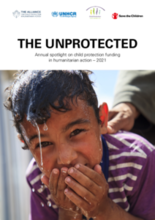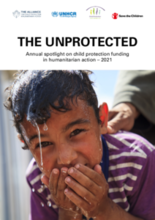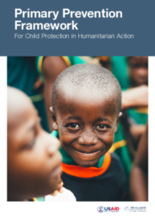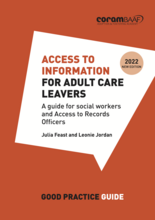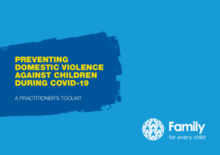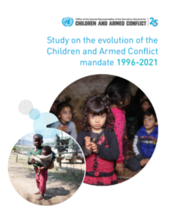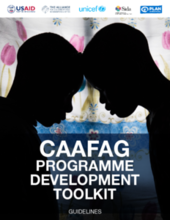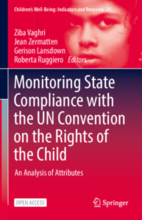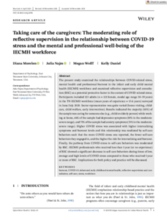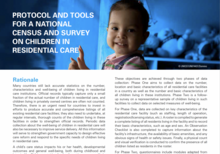Displaying 281 - 290 of 1343
Children make up 50% of those affected in humanitarian crises and are disproportionately impacted by conflict and crisis.
The Unprotected Series maintains an important spotlight on the resources needed and those available for child protection actors to provide essential and life-saving services across the humanitarian system.
The Primary Prevention Framework for Child Protection in Humanitarian Action (the Framework) provides guidance for humanitarian workers on the key actions and considerations to apply when developing or implementing programming to prevent harm to children in humanitarian settings at the population-level. The Framework highlights guiding principles and specific actions to take within each of the five steps of the program management cycle for effective primary prevention efforts. Supporting resources and practical tools are linked within each step.
This good practice guide published by Coram BAAF is for Access to Records Officers (AROs) and social workers in the UK who are providing access to records and related services for adult care leavers and aims to set out a protocol for dealing with Subject Access Requests (SARs) in order to improve services for adult care leavers and establish greater consistency and quality practice across organisations.
Family for Every Child Alliance members strengthened and adapted their service delivery to provide vital support in the changed circumstances. This Toolkit uses their experiences and lessons learned to guide practitioners to support children and families to prevent domestic violence from affecting children. With specific resources focused on prevention and response, a variety of practices from around the world are given here, to encourage cross-learning and exchange and to generate new learning across the alliance and beyond.
This study looks at the results achieved under the mandate of the Special Representative of the Secretary-General for Children and Armed Conflict (SRSG CAAC) in the past 25 years, the challenges that impacted its implementation and the opportunities to improve the protection of children affected by conflict.
The Toolkit is intended for field practitioners working with Children Associated with Armed Forces and Armed Groups (CAAFAG), who are interested in designing and implementing quality, gender-sensitive and participatory programming.
Three decades of reporting from the States Parties to the Committee on the Rights of the Child have revealed many gaps between the promise of the convention and the reality on the ground for children. This book is an article-by-article analysis of almost all substantive, organizational, and procedural provisions of the Convention on the Rights of the Child.
his study examined the relationships between COVID-related stress, mental health and professional burnout in the infant and early child mental health (IECMH) workforce and examined reflective supervision and consultation (RSC) as a potential protective factor in the context of COVID-related stress.
The Data and Analytics Section at UNICEF Headquarters developed a data collection protocol and tools for conducting a census of residential care facilities, the enumeration of children, and a survey of child well-being that can be replicated and adapted in a variety of country contexts.

